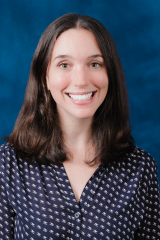Enhancing Communication about Sexual and Reproductive Health between Oncology Clinicians and Adolescent and Young Adults

Research studies show that adolescent and young adult cancer patients (AYAs) want better communication about sexual and reproductive health (SRH) issues with their oncology clinicians. Unfortunately, many clinicians do not recognize the importance of these issues and rarely talk about them with AYAs during treatment and in survivorship. Our past research shows that clinicians do not discuss SRH because they lack knowledge about and experience with the types of SRH issues AYAs may face during cancer and they are not sure how best to carry out these conversations. To help address these issues, we developed a SRH communication intervention that includes three parts: 1) a brief education module for clinicians to learn about the important SRH-related issues that AYAs may encounter during cancer treatment, 2) a conversation guide to help clinicians know how to start SRH conversations and what to say, and 3) a pre-visit checklist that lets AYAs pick from a list of possible questions or concerns that they may have about SRH to help their clinician know what they want to talk about before they meet.
Project Goal: Our goals for this research are to ask AYAs and clinicians for feedback on each part of the intervention in order to make improvements and then to pilot test the intervention in the outpatient clinic setting to better understand the challenges of putting the intervention into practice. Future research will investigate the impact of this intervention on improving SRH conversations between AYAs and clinicians, and how better communication impacts AYA health and quality of life.
Project Update 2022: We have completed a survey of 603 pediatric oncology clinicians across the country to help us better understand how they talk about and address sexual and reproductive health (SRH) issues with adolescent and young adult (AYA) cancer patients. The information collected from this survey was used to improve the design of the SRH education modules for clinicians. The modules underwent review by clinicians across the country, who responded with very helpful and positive feedback. Reviewers requested the development of a fourth module that focuses on how to screen for and manage sexual dysfunction in AYA cancer survivors, which is currently in development. Our next step is to pilot all 4 pieces of the intervention at Connecticut Children’s this spring to see how easy it is for clinicians to complete in a busy academic setting as well as identify any barriers to completion. Future research will look at how effective this intervention is in improving clinician and AYA conversations about sexual health.

